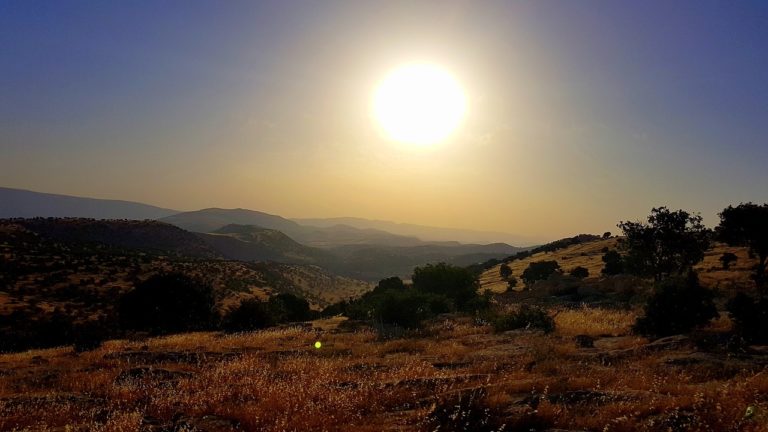Can the effects of climate change be one of the factors that drives the creation of violent terrorist groups? There are examples from recent conflicts that point to the dangers of climate change extending to the possibility of armed conflict and terrorism. This threat is directly related to the negative effect that climate change has on individuals’ ability to earn a living, especially for people like farmers and fishermen that are dependent on the availability of natural resources.
– The climate change issue started in Iraq intensively in 2006 and 2007, when drought and global warming affected the west part of Iraq, mainly in Nineveh and Al Anbar, explains Iraqi activist Aala Ali, during an interview with the Climate Diplomacy Initiative.
– Many families became jobless after the drought; no agriculture, their animals died. Thousands of youth became jobless, and this was the critical point that those terrorist groups – including Al-Qaida and, later on, ISIS – recruited those youth really easily, because they had no other options.
Severe economic vulnerability and environmental degradation create conditions for populations to form and be recruited by violent groups. In countries such as Iraq, where nearly a quarter of the country’s population is dependent on agriculture for their subsistence, climate change is particularly threatening to the livelihood of many people.
The subject of climate change and economic vulnerability has been a topic of discussion at the United Nations Climate Change Conference (known as COP24) discussions in Katowice, Poland this month. Dr. Koko Warner, representative of the UN Framework Convention on Climate Change (UNFCC), brought up the specific vulnerabilities faced by agricultural workers.
– If you’re a farmer and the rains fail you for several years in a row, you may all of a sudden lose not only your access to food, but your entire source of income, and the well-being of your entire family can become very precarious, Warner explained.
In the case of Iraq, years of drought, ongoing conflict and governmental fragility have created a situation where terrorist groups have been able to exploit desperate populations. Iraq’s primary environmental concern is severe water scarcity, an issue that is projected to worsen due to decreasing rainfall. Nowadays, Iraq is almost completely dependent on neighboring countries for access to water. The situation is worsened by the inability of the state to ensure basic services for its people, leaving affected populations more likely to turn to armed groups for income and service provision.
The importance of water in this region became clear in 2014, when ISIS took control over more than a third of Iraq’s territory. Control of water resources and infrastructure was a critical way for the terrorist group to turn the conflict in its favor, as they controlled large sections of the Tigris and Euphrates rivers that provide water downstream, including to Iraq’s capital, Baghdad. ISIS also attempted to take control of several major dams, infrastructure upon which entire regions of Iraq are dependent upon for water access and that has been identified as having critical importance during previous conflicts. ISIS was also able to use crisis situations in its favor, by providing food and cash payments to families affected by extreme weather events in exchange for support. Pre-existing tensions between communities are also worsened by tightened access to needed resources, worsening ethnic and religious divisions and driving more people to join the organization.
Although the effects of climate change have already led to conflict in countries like Iraq, it’s important to keep in mind that many of the factors involved in the creation of these terror groups can be mitigated. Preventive measures are important for countries that face climate change-related vulnerability, as is better cooperation among neighboring countries to ensure balanced access to resources. Also, international actors can assist by providing support to local programs for sustainable resource management, and to bolster the state institutions that are responsible for providing needed services for the country’s population. The formation of violent groups is not an inevitability, but rather, it’s something that good planning and international support can help prevent.

